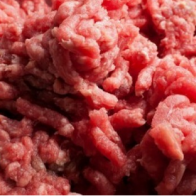 The summer is almost over, but there are at least 5 more weekends for you to ditch the ribs and hamburgers and throw some veggies on the grill. If you’re not convinced by the multiple stories that have linked meat of all kinds to cancer, heart dis-ease, and stroke, maybe this latest article will scare you straight.
The summer is almost over, but there are at least 5 more weekends for you to ditch the ribs and hamburgers and throw some veggies on the grill. If you’re not convinced by the multiple stories that have linked meat of all kinds to cancer, heart dis-ease, and stroke, maybe this latest article will scare you straight.
According to WebMD, red meat, particularly processed red meats like bacon, sausage, and hot dogs, may increase a person’s risk of developing type 2 diabetes. The more processed or unprocessed red meat a person eats, the greater the risk, according to a new study in the American Journal of Clinical Nutrition.
In the study, participants who ate one 3.5-ounce serving of non-processed red meat a day, such as steak or hamburger, were almost 20% more likely to develop type 2 diabetes.
Those who ate half of this amount of processed meat, such as two slices of bacon or one hot dog, had a 51% increased risk for developing diabetes.
The meat industry is not taking this new study lightly. They have come back with their own team of researchers that claim lean beef actually plays a “beneficial role in a healthy diet, including reducing type 2 diabetes [and] there is simply nothing in this recent Harvard study that should change how people enjoy nutrient-rich beef as part of a healthy, balanced diet,” this according to Shalene McNeill, PhD, RD, the executive director of human nutrition research at the National Cattlemen’s Beef Association
Hold on, isn’t the meat in question, processed?
Frank B. Hu, MD, PhD, a professor of nutrition and epidemiology at Harvard School of Public Health in Boston, doesn’t know exactly how processed meat affects a person’s diabetes risk, but he is sure that there is a firm connection:
“Regular consumption of red meat, especially processed, is associated with an increased risk for type 2 diabetes. The findings are important given the rising epidemic of diabetes and the increasing consumption of red meat.”
Isolating red meat from one’s diet is not going to keep the dreaded Type 2 diabetes away. Many factors contribute to the dis-ease, such as, but not limited to, lack of exercise, eating too much processed sugar, and gorging on overly fatty foods.
Basically, eat more vegetables!






